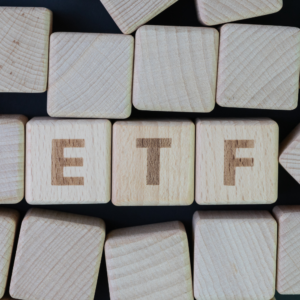
Are you someone who is looking to buy or rent a home in France? If the dream is a home in the French countryside or a Parisian “pied à terre“, it’s worth noting that the purchase or rental process is quite different than back in the States. Here is a clear breakdown of what to know on the road to getting settled in France.
Bonjour, dream home! How to buy or rent a home in France
You can quite easily find housing listings on websites such as seloger.fr or leboncoin.fr, or partake in the quintessential French pastime of window-shopping at your local real estate offices. Once you find a place however, be warned that the application process is a lot more complicated than in the United-States, and can pose particular problems for expats just arriving from overseas.
Creating your “dossier”
The French “dossier” (application file) is an involved process, and don’t be surprised if you need to include some uncommon items and documents. In addition to copies of your passport, you will need proof of income such as a work contract, certificate of business if self-employed, or student enrollment certificate, as well as possibly a proof of your current residence or letter of recommendations.
Becoming “propriétaire“: buying property in France
Buying a home in France can be a great opportunity due to the prices and the historical stability and growth of the French housing market. Be prepared however for a rather lengthy 3-6 month purchase process.
- Income requirements for mortgages: French banks must follow strict state-imposed rules regarding levels of debt. The main requirement is that monthly payments do not exceed 33% of monthly income. It’s even more complicated for clients with foreign income so we recommend contacting Harrison Brook to find you a specialized broker or banker.
- “Compromis de vente” and “acte de vente”: The process of buying a French property follows two important steps, starting with the signature of the preliminary sales contract (“compromis de vente“) where you and the seller officially commit to a price. Then, there is a period of a few months to secure a loan if necessary and let the notary conduct all the official verifications before signing the final sales agreement. (“acte de vente”)
- the “notaire“: It´s very important to find a trusted French notary (“notaire“) to act in your best interest. Unlike in the United-States, the notary plays an important role in the purchase process and will act as an escrow and title agent, as well as verify that everything is in order.
- Closing costs: The closing costs in France will be a little heftier than in the States because the agreed purchase price might include the real estate agent fees, but not the 7% notary fees. Keep these closing costs in mind when negotiating with a seller or real estate agent.
Renting “savoir-faire“: preparing for your “tête-à-tête” with French renting requirements
Landing your dream rental in France is a little easier than the purchasing process, but will still require a dossier as well as a few other requirements.
- Income requirements: Due to the strict housing and eviction rules in France, most landlords and property managers require that the rent does not exceed 33% of your monthly income. This is especially true in high volume areas like Paris, but can be negotiated in smaller cities if you are a high income earner.
- Guarantor information: The most important detail for a French rental dossier is the guarantee. Again, due to the strict housing and eviction rules, French landlords want a guarantee to insure against the risk of overdue rental payments.
- A rent guarantor: The most common option is to have someone agree to be your guarantor in the case that you don’t pay the rent. In France, this is normally your parents or family member, but can be anyone such as a close friend or business partner.
- A bank guarantee: This is when a bank agrees to block a certain sum of money (normally 1 year’s worth of rent) in a savings account that the landlord can access if you ever default on the rent. This is a practical option for new expats, but unfortunately less and less banks are willing to grant them.
- Unpaid rent insurance (“assurance de loyers impayés”): Another option is to get insurance that will assure payment of overdue rent. However, these insurance companies have stringent income requirements and normally only look at French income.
Once in France, “mettre à jour” your other responsibilities
If you decide to live in France and gain French residency, don´t forget you must keep your immigration status up to date and comply with the specific American and French tax and financial responsibilities for U.S. expats. We recommend speaking with a cross-border financial advisor at Harrison Brook to know how to manage your finances properly and avoid costly mistakes.
En route to peace of mind with the right cross-border team
Moving to France can be an enriching adventure as you navigate the intricacies of French life and create a fulfilling future in this captivating country. Harrison Brook has done the legwork to find partners and solutions that are adapted to American expats living in France, whether it´s attorneys specialized in immigration and cross-border estate planning, or tax advisors that can take care of American and French taxes. It is important to build a team of professionals that will be able to handle all the new cross-border issues, so don’t hesitate to reach out to us and schedule a meeting with a Harrison Brook advisor.


